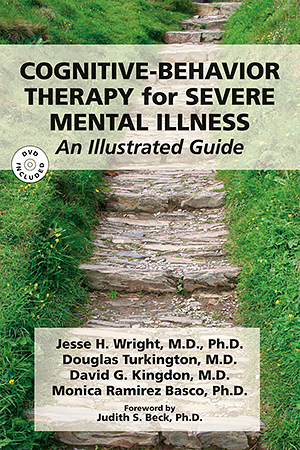Foreword, Preface, Acknowledgments
Sections
Excerpt
When results of the first randomized controlled study comparing cognitive therapy (also referred to as cognitive-behavior therapy or CBT) with medication for depression appeared in 1977, the positive findings were greeted in many quarters with a certain amount of skepticism. Yet after an outpouring of research and wide dissemination throughout the world, CBT is now recognized as a core empirically supported treatment for psychiatric disorders. And, as evidenced by this exciting new book on CBT for severe mental illness, the reach of cognitive therapy has broadened to include even the most challenging conditions—a range of disorders that were once considered to be largely outside the scope of psychotherapy.
Access content
To read the fulltext, please use one of the options below to sign in or purchase access.- Personal login
- Institutional Login
- Sign in via OpenAthens
- Register for access
-
Please login/register if you wish to pair your device and check access availability.
Not a subscriber?
PsychiatryOnline subscription options offer access to the DSM-5 library, books, journals, CME, and patient resources. This all-in-one virtual library provides psychiatrists and mental health professionals with key resources for diagnosis, treatment, research, and professional development.
Need more help? PsychiatryOnline Customer Service may be reached by emailing [email protected] or by calling 800-368-5777 (in the U.S.) or 703-907-7322 (outside the U.S.).



